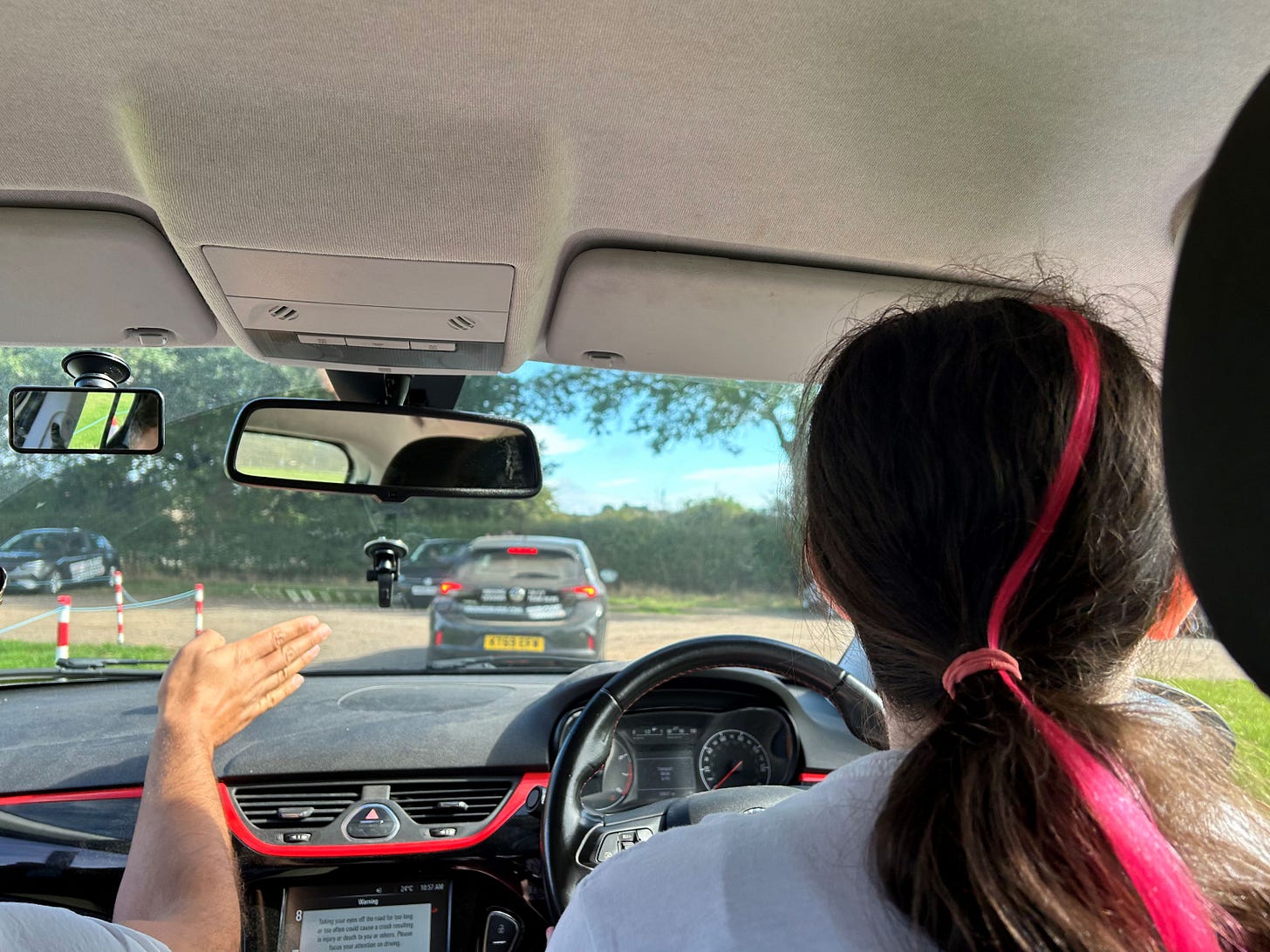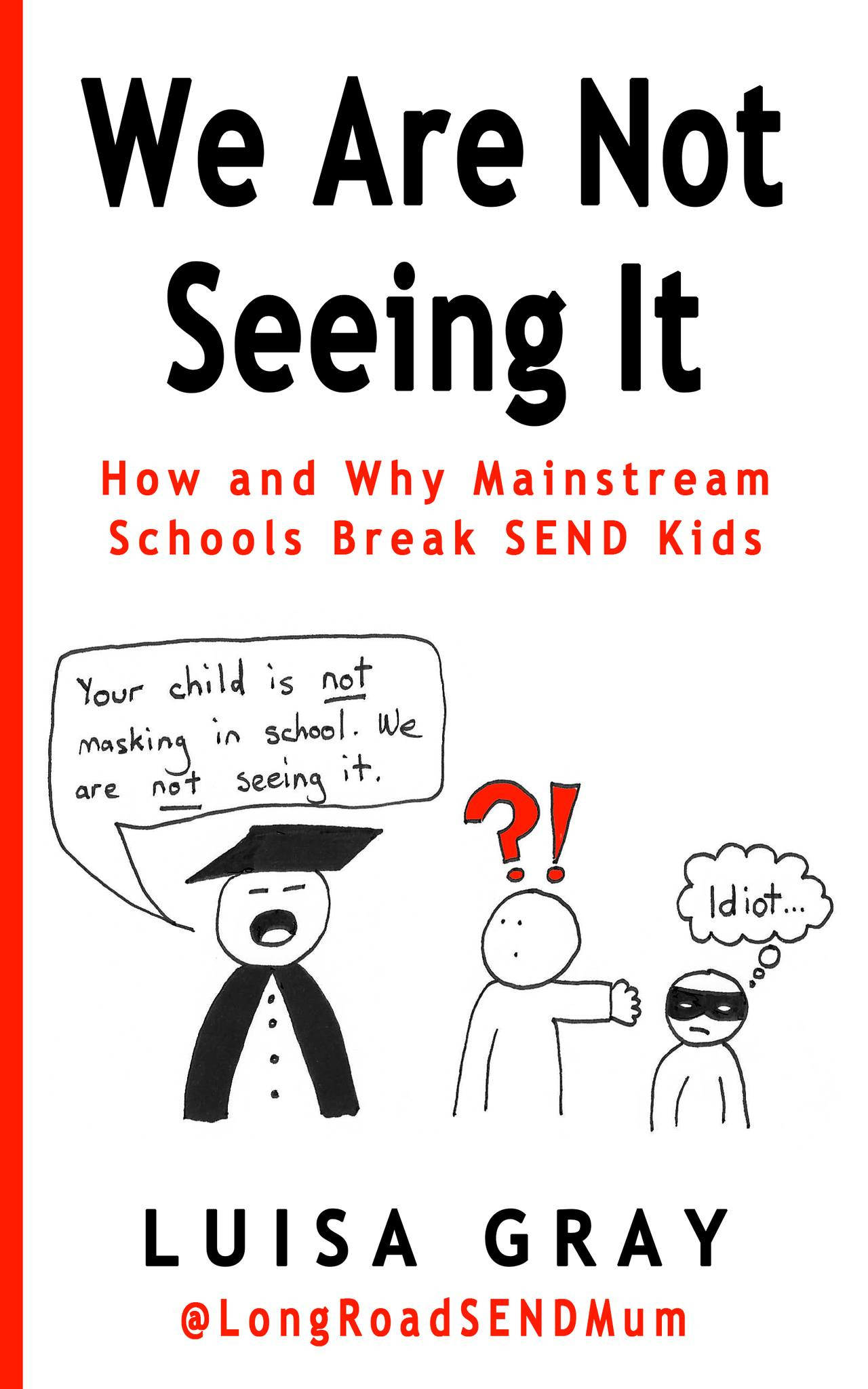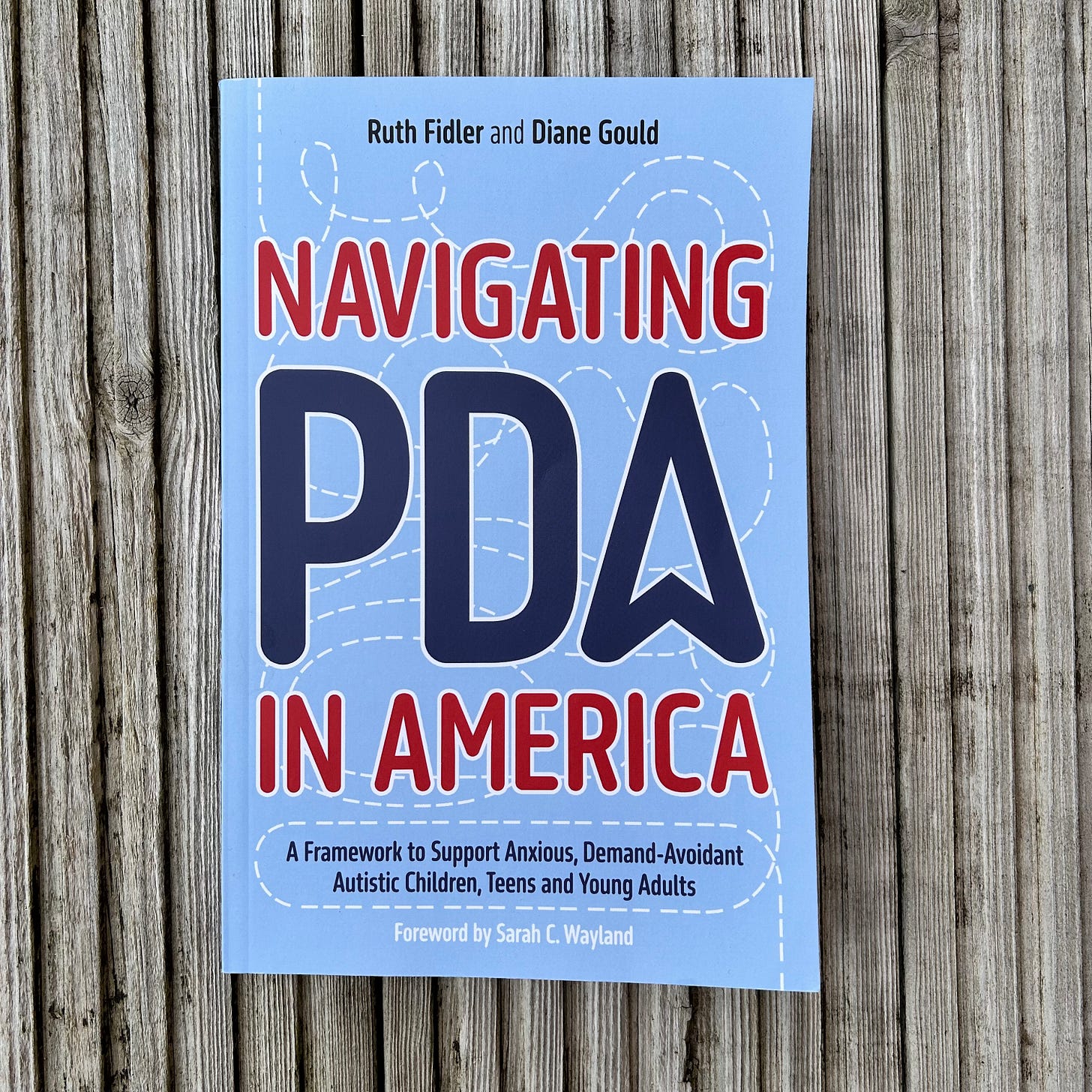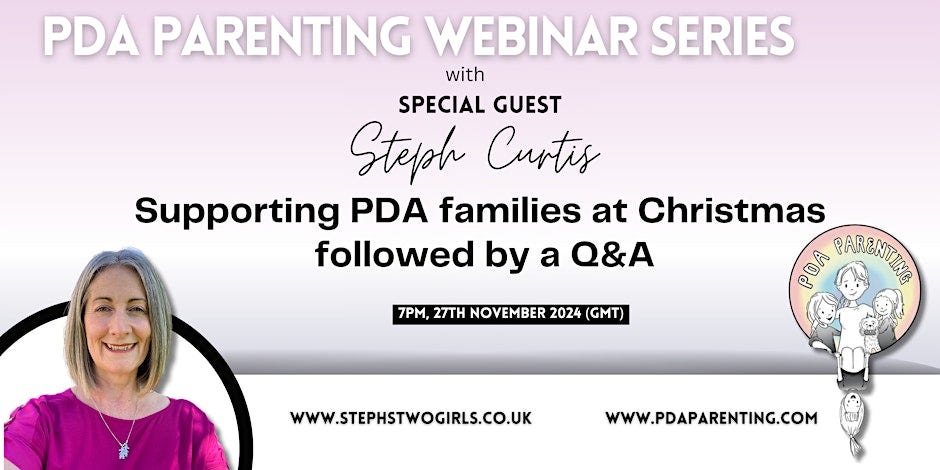Hello, it’s been a while since I popped into your inbox…. and I know that’s how I also started my last email. Proof that I am neither consistent or original. And what follows might be a bit of a ramble, sorry. I’m still trying to figure out how I can best help other families.
This year has been a bit of a weird one for me; since publishing our book in January I feel like I’ve lost my way somewhat. Years of posting on social media has drained me but I think both that I have more to say and that there are other ways I can support the PDA community. I’m working on it!
For our family, that stage ‘adulthood’ is looming. As is the way for many families of SEND children, but in particular those who haven’t stayed in mainstream schools, the way forward post-18 looks more than a little fuzzy. With a PDA daughter who doesn’t leave the house other than to go to school (and what a turnaround/strange state of affairs that is!), I sometimes feel like the best I can do is hope.
Not Fine in School
This graph was created by our daughter a few years ago, as part of her YouTube animation about her school experiences: School.. I think she would add an upwards turn to that graph line now, to signify the experience she’s had over the last year in a specialist setting. She’s one of the lucky ones, to have had something, but she has still missed out on so much.
I feel kind of relieved that the end of our time wading through the education system is nearing. But where do we go from here? I don’t have the answer to that, but I do know that I’d like to help make this system better for children who are following on behind mine. There are currently over 65,000 people in the Not Fine in School Facebook group - so many families with children who are struggling in school. So many more who don’t even know about this group, and who are left feeling isolated, and yet more who have taken their children out of education settings. Choosing to educate at home or in the community because the schools are not suitable for their children’s needs.
The Government has announced a Curriculum and Assessment review. They are going to consider the existing national curriculum and statutory assessment systems in England, to ensure they are fit for purpose and meeting the needs of ALL children and young people.
The review panel are inviting people to share their ideas for potential improvements to the curriculum and assessment system, share what works well with the current system, and give details of anything that doesn’t work.
They would like to hear from a wide range of people including students, parents and carers, teachers, tutors and lecturers, and anyone with an interest in the curriculum.
The call for evidence is open until 22 November 2024. Please, if you can, try to find some time to give feedback on this. Sometimes the questions might be wordy when these reviews call for feedback, but even answering just one question, in the way you want to, with your thoughts on how curriculum and assessments could be improved, could honestly make a difference for so many children like mine: Find the survey on the gov.uk website here!
Driving
Our PDAer has now had two driving lessons and enjoyed them both. I wrote about this experience on my blog (here: www.stephstwogirls.co.uk/2024/09/young-driver-driving-lessons-review) and can fully recommend the Young Driver team for anyone with an anxious child. I am loving that she has grasped this opportunity but I think it unlikely that these lessons will lead to our girl driving on her own any time soon. The demands and anxiety involved in having to take not just a practical but also a theory test are probably going to be too much for her. Being in a ‘live’ situation on the roads and having to second guess what other people might do might also be a stretch too far. But we’ll see, I have of course learnt to never say never!
Book Reviews
'We Are Not Seeing It' is an honest and compelling read. The strapline of this book is 'How and Why Mainstream Schools Break SEND Kids' and if you think that indicates that this book has been written by a parent with a less-than-rosy experience of the system that many of us SEND parents find ourselves up against, you would of course be right.
Written by Luisa Gray, whose awesome illustrations can be found online at @LongRoadSENDMum, this book is a straight-talking account of what is wrong with the system, and how some of the people in that system are failing children. It is not a generalised dig at everyone working in education or Local Authorities and I truly hope it isn't seen as that; it's just an honest look at the kinds of situations so many SEND families have faced over the past few years. Read more of my thoughts in We Are Not Seeing It {Book Review}
Navigating PDA in America might not sound like it’s relevant for the UK but it does contain a lot of great information about PDA, along with suggestions of strategies and ways to help.
Chapter 3, Supporting Families at Home, is my favourite. It opens with 'Family life with a PDAer can be complex' then mentions how many parents of PDA children, teenagers and young adults describe their life at home as "walking on eggshells".
... most families have had to find out what works for them the hard way, by trial and error. What professionals need to appreciate is that parents, having lived with their child, are literally years ahead of them in this process, Which means they carry a huge wealth of knowledge that will benefit everyone if it’s shared.
The authors offer solutions for a variety of tasks and situations, such as outings, holidays, appointments, and wider family and siblings relationships. The book also talks about how vital it is for PDAers to have the chance to focus on social and emotional learning, well-being, self-advocacy and independence as part of their learning. Find out more in my blog review here: Navigating PDA in America
Supporting PDA families at Christmas Webinar
At the end of this month, on November 27th, I’m joining together with Danielle from PDA Parenting to host a special online event aimed at PDA families during the holiday season. Holidays and events can be triggering for many neurodivergent individuals and whether you're a parent, caregiver, or educator, this webinar is designed to help you create a more enjoyable Christmas. We can’t create a 'perfect day' but instead we hope to help reduce the overwhelm to make the social occasion feel less threatening for everyone.
Don't miss out on this opportunity to connect with others in the community who can share their own experiences to support your own families. Register now via Eventbrite: Supporting PDA families at Christmas Webinar
Question Time
This week I am very aware that we are hurtling towards that December ‘celebration’ date, and I know it can be a tricky time of the year for some. I’d love to know how you’re feeling about it all?
Thanks for reading! If you have any questions, please get in touch via stephstwogirls@gmail.com or reply to this email. If you know someone else who would like more info about PDA, please feel free to forward them this email and ask them to subscribe to receive further updates!











Keep on Keepin' on, do your best you can do no more, but always remember how many people you have helped so far. Ignore the nay-sayers, they are probably the same people who believe The Trump will save the world.
I work as a counsellor for young people, and my focus isn’t on labels or diagnoses but on how a child regulates and when and why they may struggle with dysregulation. For some children, self-regulation isn’t yet possible, so parents and teachers play a vital role in co-regulation. With the right support, this can sometimes lead to greater self-regulation over time.
The dominant models in medicine and education often rely on diagnostic categories, which can be useful for some but may also lead to a focus on management and control rather than understanding. My approach is different. I aim to help young people understand how their unique nervous system responds to the world and support parents and carers in responding appropriately. Rather than focusing on labels, I prioritise working with the child’s lived experience and needs.